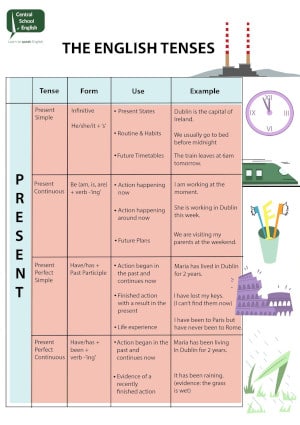How to do Speaking part 1 in the Cambridge B2 First

Speaking Part 1 of the Cambridge FCE Exam tests your ability to talk socially about yourself…
So, you’re thinking of taking the First exam? Welcome to this series of posts about the Cambridge B2 First exam, sometimes known as the FCE exam – the First Certificate of English. The whole exam is divided into four different ‘papers’ – Reading & Use of English, Writing, Listening, and Speaking. This page offers a guide to the first part of the Speaking Exam in the Cambridge B2 First Exam, what it tests, how to approach it and how to revise for it. Don’t be afraid, Speaking part 1 – let’s go!
General Information about the Speaking Exam
The Speaking exam lasts for about 15 minutes and the students are in pairs. (Depending on the number of students taking the exam it is possible there might be some groups of three, but this is unlikely). There will be two examiners in the room – the ‘interlocutor’, who is the examiner who will do the talking and ask all the questions; and another who is there to make notes and control the recording equipment.
There are four parts to the Speaking exam. The first two parts are individual exercises, and parts three and four are collaborative – so you will need to work together with your partner.
What the test involves
Speaking part 1 has a very simple goal, which is to relax the students by getting them to answer some basic personal questions about themselves, their hobbies, their life etc…
Time
1-2 minutes per student.
What's being tested
The student’s ability to respond to social questions and listen to their partner (although at this stage you don’t need to talk with your partner, this is an individual exercise).
Learn to SPEAK English
Join a live online English tutor to get help with your English or study at our school in Dublin, Ireland.
Individual and group classes with our expert teachers.
General English | FCE Exam Preparation | CAE Exam Preparation
How to do the Speaking part 1
Don’t panic
Some students feel nervous about doing exams so Speaking part 1 of the First Certificate is deliberately simple – in the sense that all the questions will be about you – your life, your likes and dislikes etc… There won’t be (shouldn’t be?!) any questions which you won’t be able to answer. Even if there is a question that you don’t have a good answer for, you can always lie!
Listen to the examiner carefully
The questions won’t be complicated or particularly difficult, but it is important to listen carefully to the question. You must make sure that you answer the question the examiner actually asked you, and you don’t deviate too far from the subject of the question.
For example:
Q – “What do you enjoy doing at the weekend?”
A – “Well, I really enjoy going to the cinema with my friends. We try to go at least two or three times a month, but it depends on what new movies have been released, so sometimes we go more frequently, sometimes less. We never go to see the same film twice. If there is nothing good on, we might take it in turns to visit each other’s houses and watch a DVD or something on Netflix instead.” (Very Good answer)
A – “Well, I really enjoy going to the cinema with my friends. The last film we went to see was the new James Bond movie. It was really good and exciting. I loved all the action sequences and the special effects.” (Not such a good answer – it seems like it’s answering the question “What was the last film you saw in the cinema?” – which wasn’t the question the examiner asked!
Try to give as much detail as you can
You want to try to take this opportunity to show off a bit of your language knowledge. Think about the tenses used in the question, and try to use that grammar again – are there any related tenses you could use as well? Don’t be afraid of trying to say something that is grammatically complicated.
Don’t panic (again) if you start making mistakes or you can’t think of the right words
A natural aspect of speaking (in any language) is something called “Self-Correction”. This is when a speaker changes what they’re saying halfway through a sentence, or they make a mistake and then repeat the sentence with the correct grammar immediately. We don’t always think about exactly what we intend to say before we start speaking, so it is perfectly common and normal to make mistakes. However, what is important is the “correction” element. If you realise that you’ve made a mistake with a tense/grammar etc… if you immediately correct that mistake, then the mistake doesn’t really count as a mistake. What you don’t want to do is to stop talking. Nobody speaks 100% perfectly all the time.
For example:
- “Well, I really enjoy to go – enjoy going to the cinema with my friends.”
Another point is if you find that you can’t think of the right word to use. Can you think of any synonyms for the word, or could you change your answer to avoid needing to use that word in the first place?
Test Yourself
Here are some example questions from Speaking part 1.
Where are you from?
What do you do here/there?
How long have you been studying English?
What do you enjoy most about learning English?
What free time activity do you most enjoy? (Why?)
What sort of work would you like to do in the future? (Why?)
Do you spend too much time working/studying? (Why?)
If you could travel anywhere in the world, where would you go? (Why?)
Thank you for reading our post. For more information about the Cambridge B2 First Exam (FCE) you can check out the official site here.
You’ll find more English grammar tips elsewhere on our site and if you’d like information on our English courses in Dublin, please do not hesitate to contact us.

The Writing exam lasts for an hour and twenty minutes (80 minutes). There are two parts to the Writing exam

In this FCE class, we look at part 3 of the Speaking test in the Cambridge FCE exam. So, you’re

This FCE Class looks at the first part of the Reading and Use of English Paper in the Cambridge First


